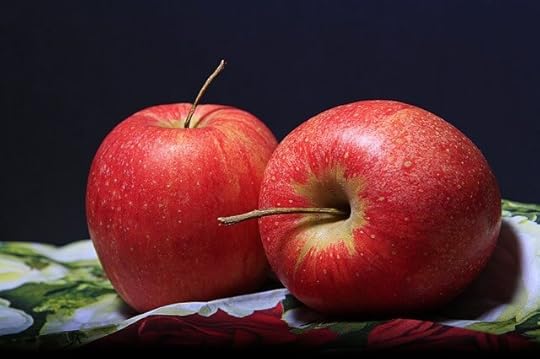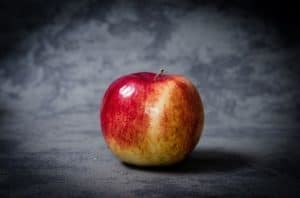Kris Spisak's Blog, page 13
May 2, 2019
Writing Tip 378: “Quiver” vs. “Quaver”



And then there’s the Quiver Tree, native to Africa, also known as kokerboom in Afrikaans. Does it ever quiver when flocks of birds leave its branches? Is there any legend about its quavering voice? I don’t think so, but the hollow stems of this massive variety of the aloe family have a long history of being used for arrow quivers. Cool, huh? Plus, these quiver tree quivers probably made many people quiver over the years. (How’s that for a correct but slightly complicated sentence?)
Your hand might quiver. Your voice might quaver. Your arrows might sit at the ready, but what’s their location strapped to your back called again?
That’s right. The word “quiver” can be tricky because it means different things—many of which are ready to be a part of an action-packed story—but it doesn’t mean everything you might think it does.
One of the most common American typos in this area is to talk about someone’s “quivering voice.” Voices don’t quiver. They tremble sure, but “quiver” isn’t the correct word in this situation.
Remember:
“Quiver,” as a verb, means to tremble or shake, and it’s often related to fear or trepidation.
“Quiver,” as a noun, is a reference to this tremble, or it can be a case for carrying arrows or sometimes even the collection of arrows themselves.
“Quaver,” as a verb, means to trill or have a tremble or vibration in one’s voice. It’s not so far off from a warble.
“Quiver” vs. “quaver” – did you already know this difference?
This is another one of those “why, English language, why?” spelling differences, isn’t it? It starts getting a bit wild when you think about adjective and adverb forms of this words—”quivery” and “quiveringly” versus “quavery” and “quaveringly”—but they are all indeed distinct words.
“Quiver” is related to the Old English word cwiferlice (sound it out and you’ll see the connection), and this word meant “zealously.” But “quiver” has been used with its present definition, at least as a noun, since the 1300s. The verb form came to be in the 1400s. “Quaver” came to be as a verb also in the 1400s, from the Middle English word “quaven,” meaning to tremble. Its verb form came to be in the 1500s.
So is there a link between the two? It’s hard to argue definitively to the contrary, but they are two different words that have been around for a long time.
You might stumble over your language sometimes—spoken or written—but don’t let it produce a quaver in your voice or a quiver in your typing fingers.
Got it?
Join 800+ subscribers and sign-up for my writing and editing email newsletter for more tips like this.
The post Writing Tip 378: “Quiver” vs. “Quaver” appeared first on Kris Spisak.
April 24, 2019
S2: E8 – Fighting Fire with Grammatical Fire


Today, let’s fight fire with grammatical fire. Or, let’s at least get your spelling right when you’re talking about fire. Think fast: if you have a “flaring” temper, how is that spelled? Is it the same as having a “flair” for fashion? And what is the past tense of the verb, “to light”? Lit? Lighted? What about the past tense of “burn”? Burned? Burnt?
So many burning questions. So little time.
This is the Words You Should Know Podcast, season 2, episode 8. Let’s dive in.
Season 2, Episode 8: Fighting Fire with Grammatical Fire
Approximate transcript:
 Katniss Everdeen might have costumes with “flare,” but unless flames are leaping from someone’s clothing, perhaps the word “flair” is what you might be looking for. Confused? Read on.
Katniss Everdeen might have costumes with “flare,” but unless flames are leaping from someone’s clothing, perhaps the word “flair” is what you might be looking for. Confused? Read on.
I’ve caught this typo a few times lately, so I wanted to pause and spend some time with it.
“Flare” can be a noun or a verb, most commonly referring to the display of fire, a sudden burst of flames, or the action of the erratic burning. It can also refer to a sudden burst of emotional heat or a spreading outward (e.g., flaring tempers or a flaring skirt).
“Flair” is a noun, referencing unique style or a natural talent.
You’ve got flair? Awesome. I really hope you don’t have flares. That’s not a good thing.
Be careful when writing with mood lighting, folks.
And speaking of that mood lighting…
 If your buddy is “lit,” he’s either drunk or he’s wearing a light-up Christmas sweater. If he’s “lighted,” I suppose you know intoxication is out of the question, but is there a difference otherwise? Should you be worried about flares of flame?
If your buddy is “lit,” he’s either drunk or he’s wearing a light-up Christmas sweater. If he’s “lighted,” I suppose you know intoxication is out of the question, but is there a difference otherwise? Should you be worried about flares of flame?
The difference between “lighted” and “lit” is a question that comes up fairly frequently, and people are always looking for the simple answer. The problem with this query is that they are both correct.
Yes, it’s true:
The verb “light” has two acceptable past tense forms: “lighted” and “lit.”
If you’re looking for the original word, “lit” is the answer; however, “lighted” came to be with growing popularity and acceptance over two hundred years ago. “Lighted” looked like it might take the lead and become the true language victor—much like “spilled” overtook “spilt” or “went” overtook “gaed”—but then “lit” had a major resurgence starting in roughly 1930 that “lighted” hasn’t been able to compete with.
“Lit” might be winning the popularity contest at present, but if you feel like “lighted” works for you, go for it. There aren’t many occasions where your language use gets to be a choose-your-adventure decision. So live it up, folks. You have fun out there. I fear this might bring us back to that other definition of “lit,” though, so be careful.
In short, when it comes to the “lighted” vs. “lit” debate, remember that if you’re looking for an adjective, “lit” is the only correct answer—whether you’re talking about a gentle glow or otherwise.
Of course, there’s also the recently popularized new definition of “lit,” meaning “exciting or “excellent,” but that one hasn’t quite made it into the standard dictionaries. It might simply be a matter of time though. “#Lit” is a Twitter favorite after all.
It’s fascinating what social media has done to the English language. Sure, you might change out “fascinating” with “disturbing” or “frightening,” but from a high-level view, social media captures language experimentation and language evolution in action.

I’m sure Smokey the Bear would have something to say about this. Or maybe even Rogue Smokey… that guy’s burns would spread like wildfire.
Some days are full of social media burns so severe people are looking for ointment. Other days, people are posting charred Pinterest fails of recipes gone wrong. But the word that comes up again and again is that “burn.”
Have you ever been “burned” by bad spelling? Ever been “burnt” by it? Is there a difference?
In truth, I could argue that the words are interchangeable—which to a degree they absolutely are—but, okay, fine, let’s talk less about what’s formally correct, and what’s most common in American English.
“Burned” is the most frequently used past tense of the verb “burn” for U.S. writers. “Burnt” is perfectly acceptable, but like barmy and axe, it’s just not the choice word on this side of the pond.
“Burnt” does have its time to shine for American writer and speakers, though—just not in a verb form. Think of burnt casseroles or burnt toast. This spelling is commonly used in adjective form. It’s also familiar in color names like “burnt sienna” and “burnt umber,” but those usages are adjectives after all.
This explanation might not help with any other burns online, but at least your spelling won’t be going up in smoke.
Oh, I suppose I should say, “No words were harmed in the making of this podcast.” And hopefully, you won’t be burned by bad spelling anymore either.
Join 800+ subscribers and sign-up for my writing and editing email newsletter for more language tips and trivia like this.
If you like what you’ve been hearing, don’t forget to subscribe to this podcast (via Apple Podcasts, Android, Google Podcasts, Stitcher, or RSS) so you’ll never miss out on another word you should know. Many thanks to those of you who have taken the time to rate my show on iTunes or wherever you listen.
Words. Language. Communications. You’ve got this.
The post S2: E8 – Fighting Fire with Grammatical Fire appeared first on Kris Spisak.
April 18, 2019
Writing Tip 377: “Pickup” vs “Pick Up” vs “Pick-up”

 If you’re hoping it’ll be a pick-me-up to be picked up by a pickup, you surely must have a handle on your language. But just in case you’re slightly baffled and would rather go find a pick-up game you’d rather be a part of, let’s take a moment to pick through these possibilities. They’re always good to know if you’re in a pickle.
If you’re hoping it’ll be a pick-me-up to be picked up by a pickup, you surely must have a handle on your language. But just in case you’re slightly baffled and would rather go find a pick-up game you’d rather be a part of, let’s take a moment to pick through these possibilities. They’re always good to know if you’re in a pickle.
Should “pickup” be one word or two?
Here’s what you need to remember:
“Pickup” (one word) is a noun, such as a truck, or an adjective, such as an impromptu round of something. You can ride in your pickup, or you can assemble a pickup band. You can tell your friend the plan for the package pickup, or you could have an impromptu round of pickup basketball.
“Pick up” (two words) is the verb form. You can pick up the package when your pickup truck arrives at your destination.
“Pick-up” (hyphenated) is a little glimpse of word evolution in action. When words change their forms, hyphenation is often stage one of their transformation. For example, “electronic mail” became “e-mail.” But as these words become more accepted, the hyphen is generally dropped, as is the case with “email” today. “Pick-up” can still be found with that hyphen in place, but it isn’t necessary anymore. Call it quaint, nostalgic (here’s looking at you, Pick-up Sticks), or verbose (if punctuation could be considered verbose), but when this “pick-up” form is used, remember it’s always as the noun or adjective form.
This has nothing to do with what Peter Piper picked; nor does it have anything to do with piccolos or Picasso. Should you be picky with your “pickup,” “pick up,” and “pick-up” usage? Perhaps. You can pick that for yourself.
Join 800+ subscribers and sign-up for my writing and editing email newsletter for more tips like this.
The post Writing Tip 377: “Pickup” vs “Pick Up” vs “Pick-up” appeared first on Kris Spisak.
April 10, 2019
S2: E7 – Splatter or Spatter from your Spigot or Spicket?


Getting my fingers covered in dirt is as satisfying as having them covered in ink. Weeding is a bit like editing, after all, cleaning up what’s there to turn it into its best.
And then there’s the wonderful language of the garden. “Zucchini” comes from the Italian word for “sweetest.” The head of an asparagus is called the “squib.” When lettuce flowers, these flowers are called “bolts.” Yes, my book on the language of food will debut in the fall of 2019, but I have a feeling that a book on the language of nature and gardening is not too far after it.
But before we get into the weeds of my publishing life, let’s talk about watering your garden—or more specifically, of course, the language involved.
Season 2, Episode 7 – “Splatter” or “Spatter” from your “Spigot” or “Spicket”?
Approximate transcript:
A few stolen minutes out of your day to talk words and communication. This is a podcast of language tips and trivia for the curious or confused. So we’ve talked about Kurt Cobain, Beyoncé, and Judas Priest. We’ve talked about spelling hijacking and spelling revolutions that didn’t quite catch steam, but there’s a mistake I catch too frequently that we need to talk about today.
So just in the nick of time, as I’m watching some clouds gather for some more April showers, let’s talk about the words of springtime.

The earth laughs in flowers…especially when your spigot is working.
When you’re referring to your outdoor faucet, are you using the right word?
Is it a “spicket”?
Or is it a “spigot”?
Think fast. How do you spell it? How do you pronounce it?
How confident are you in your guess?
“Spigot” is the correct answer. Did you get it?
“Spicket”—though commonly said and written—is not actually a word. This confusion dates back to the Middle English “spyket,” according to Merriam-Webster though, so I wouldn’t feel so bad about it if you had it wrong. There’s some history in that mistake. It doesn’t make it right, but there is some history there.
But now you know, right?
Back to watering your garden? Good luck with your weeds and your words.
And getting back to that rainy sky I’m seeing…

This artist spatters paint; Jackson Pollock had a tendency to splatter. Do you know the difference?
Before April showers bring May flowers, there are a lot of puddles around. If you’re inclined to splash around in your galoshes, you need to know the difference between “spatter” vs. “splatter.” Neither are misspellings. And there is a difference.
Take a moment with this one. Any guesses?
Here’s a hint: “Splatter” appears to actually be an old portmanteau, a squishing together of “splash” and “spatter” in the vein of frenemy, brunch, or nowadays. Its first known use was in 1785.
Here’s what you need to know:
“Spatter” can mean to splatter—as in to spread, splash, or distribute in drops—and it can also be the spread out scattering of drops themselves.
“Splatter” follows nearly the same definition as a verb and as a noun, but the difference comes in the size of the drops. Remember, when “splash” and “spatter” combined, “splatter” came into existence. Thus, “splatter” is a bigger, splashier spreading of drops.
A drizzle might spatter the pavement. A car driving by a puddle will splatter someone walking down the sidewalk. When water splatters into your watering can from your spigot, a spatter of drops might cling to the side of the metal. When the sprinkler is turned on, it will splatter your garden (or you, if you decide to run through it).
Use “spatter” and “splatter” interchangeably if you wish. Most people do nowadays. However, if your meticulous nature enjoys subtleties of language, this one’s for you.
Nowadays … nowadays … I’ve said it twice now, so we might as well go there.

You might be dumbfounded to learn you can just mash words together like this and call it correct, but it’s as true with “nowadays” as it is with the word “dumbfounded.”
Sometimes, when it comes to spelling, we might feel like we’re in a daze, especially when it comes to words that we hear said more than we see written.
If you were writing this phrase in the fourteenth century—if you were lucky enough to know how to read or write in that era—you would have been using a multiple word form, but language has evolved since then.
Nowadays, the correct spelling is “nowadays”—all one word. No hyphens or spaces needed.
People seem to get nervous around words like this, as if they’re just sticking things together that don’t really belong, portmanteaus like baconator or sharknado. But like spork and netiquette, this is a mashup that truly works.
“Nowdays,” on the other hand, is simply a typo. I feel like I have days like that sometimes, when everyone seems to want things now, now now… but that’s not really what anyone’s going for with this attempt at spelling.
Got it? Good.
Isn’t the English language fascinating? And maybe confusing. I hear you. But the more we dive in, the more effective you can be with your usage of words and the more ready you’ll be to drop that awesome trivia at the water cooler. Who doesn’t need good trivia for the water cooler? Or the spigot for that matter.
Join 800+ subscribers and sign-up for my writing and editing email newsletter for more language tips and trivia like this.
If you like what you’ve been hearing, don’t forget to subscribe to this podcast (via Apple Podcasts, Android, Google Podcasts, Stitcher, or RSS) so you’ll never miss out on another word you should know. Many thanks to those of you who have taken the time to rate my show on iTunes or wherever you listen.
Words. Language. Communications. You’ve got this.
The post S2: E7 – Splatter or Spatter from your Spigot or Spicket? appeared first on Kris Spisak.
March 28, 2019
Writing Tip 376: “Ground” vs. “Grinded”


The mill “ground” the grain or the mill “grinded” the grain? What’s your answer? How confident are you?
What is the past tense of “grind”?
I’m asking this as someone who might grind coffee beans, not as someone dancing scandalously at a club. Yes, this changes the answer. Does that give you enough of a hint to know the difference?
If you’re looking to history, there has always been the same answer to this question—well, maybe not about the scandalous dancing part. The incorrect answer has indeed had multiple surges in popularity over the past three hundred years, but unlike other instances when the non-standard form sometimes becomes more popular (here’s looking at you, “spilled” vs. “spilt,” “went” vs. “gaed,” “hiccup” vs. hiccough,” and the still fighting it out pair of “lighted” vs. “lit”), the correct answer always has remained “ground.” I’m not willing to commit to the idea that it always will be correct, but for now at least, it’s the hands-down winner.
Yes, that’s right. “Ground” is the correct past tense form of “grind.”
And to speak to my earlier note, the only exception to this is when referencing the verb “to grind,” meaning the sexual, up-close-and-personal dance moves. If it’s the “grinding” you wouldn’t necessarily chat to your parents about, this would be a story of how someone “grinded.”
If you want an easier hint, though, remember this:
The answer you found was “ground.”
Did you see my reminder there? Just like “find,” which has a past tense of “found,” “grind” has a past tense of “ground.”
Did you get this one right?
Bonus tip: It’s true for your coffee beans too. Whether you’re prepping them for your morning brew or saving them for your compost, remember that they are “coffee grounds,” not “coffee grinds.”
Join 800+ subscribers and sign-up for my writing and editing email newsletter for more tips like this.
The post Writing Tip 376: “Ground” vs. “Grinded” appeared first on Kris Spisak.
March 20, 2019
S2: E6 – All the Honeys Makin’ Money — or is it “Moneys”? “Monies”?


“Death, taxes and childbirth! There’s never any convenient time for any of them.” So says Margaret Mitchell, author of Gone with the Wind, and you know, it’s a true statement.
It’s tax season, so let’s dive in. Into the numbers? Nope, not here. Let’s dive into the language of money.
When should “money” be written in the plural form “monies”? When should we talk about “the amount of” something versus “the number of” something? Yep, there’s a difference. And lastly, what is the language equation that baffles math minds everywhere where the plural plus the plural of this money term equals the singular form? (You’ve probably heard me talk about this last one before, but it’s one of my favorite math equations. I can’t help but bring it to my podcast.)
This is season 2, episode 6 of the Words You Should Know podcast
Season 2, Episode 6 – All the Honeys Makin’ Money — or is it “Moneys”? “Monies”?
Approximate transcript:

Wait, was Destiny’s Child a group of grammar divas?
Here’s a thought: when Destiny’s Child sang, “All the honeys that making money, throw your hands up at me,” were they annoyed that “honeys” and “money” didn’t make an exact rhyme? Were they right to say “money” and not “moneys” or “monies”? Did they miss an opportunity for poetic perfection? Am I over-analyzing things again?
Hold that thought, early-Beyoncé fans. Do you know the difference between “money” and “moneys” and “monies”?
The good news here—for all of us—is that Beyoncé, Kelly, and Michelle were absolutely right in their use of “money.” This is an example of a mass noun, which often refers to an uncountable abstract. We’re talking about the idea of cash or capital, not a specific amount of dollars or cents. There’s a plurality that’s understood in “money,” which is what often confuses people about the uses of “moneys” or “money.”
So here’s the rub:
For the majority of us, the only word we ever need to use is “money.” The plural forms are sometimes used in the legal or financial worlds when specifying individual sums of money, but the correct form is arguable. While many style guides still recommend “moneys,” “monies” has been gaining popularity and is found most commonly today. If you are in a field that uses the plural form, I’d recommend “monies”; however, my true recommendation is just to keep things simple and go with “money.”
As for “All the mommas who profit dollas,” I’m not even going to touch that. Thus ends today’s grammar note via a flashback.
 There are lots of words we use every day that have subtleties that most people never learned. The usage differences between “an amount of” and “a number of” fall into this category. Much like farther/further or less/fewer, the correct use comes down to measurability—specifically count-ability in this case.
There are lots of words we use every day that have subtleties that most people never learned. The usage differences between “an amount of” and “a number of” fall into this category. Much like farther/further or less/fewer, the correct use comes down to measurability—specifically count-ability in this case.
Here’s today’s lesson:
“Amount of” should be used when referring to uncountable things.
“Number of” should be used when referring to things you can actually count.
For example:
There’s a great amount of wisdom that readers can glean from blogs these days. A great number of my favorites teach me new things every day. Wisdom is not countable. Blogs are.
I should add in the an extra note about “a quantity of,” which follows “number” in that it only refers to countable things. There are more differences there, but we’ll save it for another day. Quality over quantity, right?
And finally…
 Let’s be wild today and think about an equation.
Let’s be wild today and think about an equation.
Singular + Singular = plural
That’s simple, right? No one would argue that.
Hedgehog + Hedgehog = Hedgehogs
Book + Book = Books
However, sometimes, the addition of an “s” is not as simple as differentiating singular and plural. Let me mess with your brain here. The following equation is also correct:
Costs + Costs = Cost
Whoa. Mind-blowing, right?
A client came to me with this question earlier in the week, and I thought it was a great one. “Cost” in its singular form refers to the sum of a total group; “costs” refers to all of the pieces within that group. For example, “the cost of a service includes material costs and labor costs.”
From legal contracts to discussions of budgets, the difference between “cost” and “costs” often befuddles people. But no longer you, savvy reader. No longer you.
Maybe nothing can be certain but death and taxes, but you can at least get your words right.
Using part of a tax refund to bulk order a book to share with everyone you know and love is always another option. Call it employee development. Call it preparedness for the next time you don’t have a gift on hand. Call it making an author ecstatic.
But you know what, you all already make me ecstatic. That’s hard to measure with numbers too—no matter how you spell it.
Join 775+ subscribers and sign-up for my writing and editing email newsletter for more language tips and trivia like this.
If you like what you’ve been hearing, don’t forget to subscribe to this podcast (via Apple Podcasts, Android, Google Podcasts, Stitcher, or RSS) so you’ll never miss out on another word you should know. Many thanks to those of you who have taken the time to rate my show on iTunes or wherever you listen.
Words. Language. Communications. You’ve got this.
The post S2: E6 – All the Honeys Makin’ Money — or is it “Moneys”? “Monies”? appeared first on Kris Spisak.
March 13, 2019
Writing Tip 375: “To pass muster” or “to pass mustard”


To “pass muster” is completely different from “passing mustard.” One involves acceptance and one might just involve your hot dog.
Dinner parties with a crowd you don’t know well can be complicated. Sometimes, you need to dress and act appropriately, and sometimes, you need to give your neighbor the appropriate condiment.
So next time you’re worried about whether the expression is “to pass muster” or “to pass mustard,” remember:
To “pass muster” is the correct phrase if you’re referring to gaining approval, meeting a certain level of acceptance, or being considered satisfactory. “Muster” in this case refers to an inspection or review that a soldier might go through. Therefore, to “pass muster” means that everything is ship-shape and how it should be. This phrase was taken out of military usage and into everyday speech in the 16th century. Note, it’s not “to pass the muster,” but simply “to pass muster.”
“To pass mustard” means that someone would like to add some extra flavor to their meal and perhaps you’re being asked to send it their way. Some prefer Dijon; others prefer brown spicy. Hot mustard might come with your Chinese take-out, and the yellow variety is ever-popular at ball parks.
And while we’re talking about muster/mustard confusion, let’s talk about another big question:
Would you say someone doesn’t “cut the muster” or that they don’t “cut the mustard”?
Are we returning to that muster inspection, or does that condiment finally have its moment in the idiomatic sun?
The good news is that you could argue there’s some fairness here.
If someone doesn’t “cut the mustard,” that means that they are not doing as well as they could. They are not the model of success. It’s most often used in this negative form, and it’s been recorded since at least the 1890s. Where this expression comes from is a bit of a mystery, but it doesn’t seem to be about physically cutting mustard plants. It might have something to do with lessening the spice of mustard by cutting the portions of the recipe, but that’s not a widely accepted etymology either. If you ask me, those researching this question might not be cutting the mustard, but so far, I can’t find anything more conclusive.
If someone doesn’t “cut the muster,” on the other hand, that might mean that they didn’t cut, as in skip, their inspection, but this probably isn’t what you’re looking for.
To recap:
“To pass muster” is correct.
&
“To cut the mustard” is correct.
All other forms are just a bit muddled.
So, yes, if someone doesn’t cut the mustard, they probably won’t pass muster. Is this confusing? Yep. Do you have a craving for a Bavarian pretzel and a side with some spice? Maybe. There’s my suggestion for your next dinner party. Just know when to pass it, when to cut it, and when it’s time to ask the nearest Rolls-Royce for the Grey Poupon.
Join 775+ subscribers and sign-up for my writing and editing email newsletter for more language tips and trivia like this.
The post Writing Tip 375: “To pass muster” or “to pass mustard” appeared first on Kris Spisak.
March 6, 2019
S2: E5 – Et tu, Brute! (And the Latin Prefixes that Stump You)


Why do I call this the “Words You Should Know” podcast? It’s not a lecture. The whole idea of grammar police annoys me. This is the podcast that reminds you that Ben Franklin and Kurt Cobain both influenced our modern English language, and spelling memes deserve to be debunked. See past episodes for those details.
And speaking of last episodes, it’s kind of ironic that the episode after I talk about apples, “how do you like them apples,” and old versions of the expression about how they keep the doctor away, I get sick.
But onward, as always. Thanks for bearing with my slightly scratchy voice today.
Season 2, Episode 5 – Et tu, Brute! (And the Latin Prefixes that Stump You)
Approximate transcript:
Today, we’re going to explore a great question that came in. Yes, I do love your questions and comments. Please do keep sending them on.
The question was, “what’s the deal with using both “un-” and “in-” as prefixes, and is there any logic behind when you use each one?”
It’s a great question, an awesome question. So let’s devote this episode to the Latin you didn’t realize you already knew. Et tu, Brute! It’s true.
The good news is that there is solid reasoning behind when you use the prefix of “in-” versus when you use “un-”; the bad news is that this logic will only help you if you have a solid understanding of language history.
In all cases discussed here, these prefixes mean “not” or the opposite of something. We see them in action all of the time:

Think fast: is this “insurmountable” or “unsurmountable”?* Bonus points if you say neither and go to pull out your mountain climbing gear.
Inactive
Inadvisable
Incomprehensible
Inequity
Infrequent
Unacknowledged
Unafraid
Unbecoming
Unequal
Unlimited
The answer to their usage relies on their roots. If the base word stems from a Germanic language, the proper prefix is “un-.” If it stems from a Latin word, the proper prefix is “in-.” Yes, it’s a nice simple answer, but not the easy answer that English spellers were hoping for.
If you’re still confused, don’t worry. Because this scholarly answer hasn’t been well understood over time, many words have fluctuated between prefixes. My favorite example is from the Declaration of Independence itself. There, as we all well know, is a discussion of “unalienable rights.” Are you doing a double-take? Yes, it’s written as “unalienable,” not “inalienable,” as is the more common form today—and technically, “inalienable” is the correct form, since we’re talking about a word with a Latin root.
If you’re arguing that this is unacceptable or inconclusive, I hear you. But at least you’ll have your answer now, whether it’s one that you’ll put to use or not.
*Answer – The correct word is “insurmountable,” since the root word comes from Latin.
Latin sidenote:

This statue probably won’t come alive and chase you down for your bad Latin spelling, but just in case, let’s work on getting “per se” vs. “per say” correct, everyone!
It’s not Latin itself that trips people up, per se, but it’s the spelling of the dead language. When interwoven with our everyday speech, Latin usage sometimes allows us to say our ideas in a more sophisticated tone, but this sophistication crumbles if we spell it “per say.”
Hear what I’m saying? Seriously, social media posters, do you? Think hard about “per se” vs. “per say.”
Remember, “per se” translates to “by itself” and means intrinsically or as such. This phrase is a quality insertion that can elevate your communication a notch, and being clever and educated is often a valuable stylistic choice. Ipso facto, don’t let a typo be your downfall.
Mea culpa if I’m pushing too hard here, but it’s the little things that we have to pay attention to. Making sure you know the right answer is just my modus operandi.
Carpe diem, and happy writing!
Back to pre-fixes, here’s my extra curve ball:
 When the discussion gets heated, are tempers “inflamed” or “enflamed”? Is there a difference? Which one should you use? Some days, it might feel hard to keep yourself in check, but before passions flare (or is it “flair”?), let’s settle this once and for all.
When the discussion gets heated, are tempers “inflamed” or “enflamed”? Is there a difference? Which one should you use? Some days, it might feel hard to keep yourself in check, but before passions flare (or is it “flair”?), let’s settle this once and for all.
The big question is, should we start by going back to Middle English (arguably the first English form of this word) or should we go all the way back to Latin? In the 1400s, the word “enflamen” came from the Anglo-French word enflamer, but just before you want to call it a win for the “en-” form, let’s travel further (not farther) back in time to the Latin root. Now, we see where the confusion started, because this root is inflammare. Suddenly, you’re thinking about “inflammable,” “inflammation,” and a number of other words that share this same origin, all with the “in-” prefix.
Thus, in short, there have been centuries of confusion and waffling between the two spellings, but since roughly 1600, “inflamed” has been the more popular form. Many dictionaries and spellcheck programs will let you get away with “enflamed,” but know that “inflamed” with that “i” is the standard spelling.
Who knew there were so many word confusion issues surrounding the idea of fire? “Lit” vs. “Lighted.” “Immolate” vs. “emulate.” “Burned” vs. “burnt.” I guess this is just one more for the list, fighting fire with grammar-checked fire.
In- … Un- … En-
Do you have another inquiry? Oh, shoot, is it “enquiry”? Oh, the fun never stops. Yes, I did say fun.
The English language isn’t built just to confuse you, per se, but it does do that sometimes. Is your challenge insurmountable? Absolutely not.
Join 775+ subscribers and sign-up for my writing and editing email newsletter for more language tips and trivia like this.
If you like what you’ve been hearing, don’t forget to subscribe to this podcast (via Apple Podcasts, Android, Google Podcasts, Stitcher, or RSS) so you’ll never miss out on another word you should know. Many thanks to those of you who have taken the time to rate my show on iTunes or wherever you listen.
Words. Language. Communications. You’ve got this.
The post S2: E5 – Et tu, Brute! (And the Latin Prefixes that Stump You) appeared first on Kris Spisak.
February 28, 2019
Writing Tip 374: “Gage” vs. “Gauge”

 If you want to go zero to sixty in a matter of seconds, speed-racer, you’re going to have an eye on the tools on your dashboard. Your speedometer, your odometer, your tachometer—these are all types of what?
If you want to go zero to sixty in a matter of seconds, speed-racer, you’re going to have an eye on the tools on your dashboard. Your speedometer, your odometer, your tachometer—these are all types of what?
You’ve probably got a handle on “gag,” “gaggle,” and “gouge,” but when it comes to “gage” and “gauge,” which both rhyme with “age” and “sage,” there’s often a moment of pause.
Perhaps I just made things worse by giving “age” and “sage” as the comparable words.
Remember:
“Gauge” is probably the word you’re looking for on most occasions. It can be either the tool that displays a measure of some kind—like an air gauge, speed gauge, or temperature gauge—or as a verb, it can be to judge, measure, or assess.
“Gage” might be your first guess at spelling the previous word (a typo found commonly online), but it’s not the same word. A “gage” is a pledge or something given like collateral. Shakespeare also used “gage” to refer to a glove thrown down in a challenge. No matter which meaning, it’s not a word frequently used.
“Cousin, throw up your gage,” says Shakespeare.
You, on the other hand, will almost always use “gauge,” I’m guessing.
Now, if you’re feeling a bit shamefaced because you’ve gotten this wrong in the past, there’s no need to race off in your car. “Gauge” first came to English in the 15th century, but the thing about the 15th century was that standardized spelling wasn’t really stressed. So, therefore, “gauge” and “gage” were used interchangeably. Yep, there’s a precedent for this confusion.
However, “gauge,” as we know it and use it, became preferred in the late 19th century and has been ever since. This is the version you should stick with.
I don’t need to gauge your interest in the correct spelling, but I would recommend it.
Join 775+ subscribers and sign-up for my writing and editing email newsletter for more language tips and trivia like this.
The post Writing Tip 374: “Gage” vs. “Gauge” appeared first on Kris Spisak.
February 20, 2019
S2: E4 – How do you Like Them Apples? (No, seriously, let’s talk this out)


If you’re listening along as I publish each episode, you might know it’s flu season in the U.S. I’m not going to go into how to spell “flu,” as in influenza, versus a chimney “flue” or the past tense of “fly,” but I do want to talk about how an apple a day can keep the doctor away. Or if not the medical side of this conversation, let’s at least turn to the language side of things.
Apples. Are they “preventative” or “preventive”? What’s the surprising linguistic twist of the Bible’s mention of the apple in the Garden of Eden? And while we’re on the subject, what’s the explosive story behind the expression, “how do you like them apples?”
Apples, apples, everywhere. This is the “Words You Should Know” podcast, season 2, episode 4
Season 2, Episode 4 – How do you Like Them Apples? (no, seriously, let’s talk this out)
Approximate transcript:

However you spell it, I suppose that apple a day falls into this category…
There’s a lot of talk these days about how eating good food is like preventative medicine. Or is that preventive? Do these words mean the same thing? Are they both really words? Can you correct your grammar-challenged friend once and for all?
Let’s set this one straight. Both “preventive” and “preventative” actually date back to the 1600s, so it can be established that both are indeed words. “Preventive” came first, yet for centuries both have been used and accepted interchangeably. (Does this not irk anyone else out there who wants a simple, cut-and-dry answer?)
In both writing and speech, though, respected sources over the years have been known to favor “preventive.” “Preventative” is commonly used–yes, it’s everywhere–but really, it’s just adding in a superfluous syllable. And don’t you want every syllable you utter to count?
So should I say, how do you like them apples?
 Good Will Hunting fans and language lovers alike have wondered about the origin of “How do you like them apples?”
Good Will Hunting fans and language lovers alike have wondered about the origin of “How do you like them apples?”
Where on earth did this phrase come from? Orchard owners? Apple thieves? Really proud produce managers?
The exact etymology of the phrase “How do you like them apples?” is a bit fuzzy, but many sources point to the idea that a specific type of mortar during World War I was nicknamed a “toffee apple.” It was large and spherical, which didn’t allow it to fully fit in the firing tube and gave it a candy apple appearance. It’s believed that the soldiers in the trenches were the first to say this phrase, “How do you like them apples?” upon firing the mortars across enemy lines.
More brutal than you expected?
Etymology, man. Stealing phrases from the trenches. Literally.
And since we’re talking about language and apples, here’s my one of my favorite pieces of apple trivia for you: “Apple” was once the generic Old English word for almost all fruit. Of course, during that era it was spelled A-E-P-E-L, but spelling aside, it’s come a long way.
Back then, if it had an edible outside and a hard core, it was simply an apple. That juicy plum? It’s an apple. A pomegranate? Well, those are grainy apples. Potatoes? Apples of the earth, of course.
If you speak French, you can see this word history in the names of many fruits and veggies still today.
But here comes the most interesting part. That forbidden fruit from the garden of Eden? What was it? I bet you know without a moment’s hesitation. It was an apple of course! Oh, wait… it was a… a… a bit of a mystery, eh? Some scholars believe this referenced figs, others grapes. There are many theories about what fruit is really a part of this story.
The specific fruit that we know today as an “apple” only had its name solidified in roughly the 5th century. A while ago, sure, but not so long ago that it still isn’t causing some confusion.
As for “an apple a day keeps the doctor away,” that’s only the most recent version of the healthy-eating reminder rhyme. Others include ‘‘Eat an apple on going to bed, and you’ll keep the doctor from earning his bread.” I absolutely didn’t see that coming. This one shifted a bit in 19th and early 20th century to be “an apple a day, no doctor to pay.” The version commonly said today was first recorded in the early 1920s.
I bet you had no idea that apples were so interesting—or at least so interesting from a linguistic standpoint.
Preventive. Preventative. Explosion-causing. Adam and Eve aside, you can’t really argue that the apple has fallen from grace.
The apple might seem ubiquitous, but it has its own secret stories. Now you know some of them too.
Join 775+ subscribers and sign-up for my writing and editing email newsletter for more language tips and trivia like this.
If you like what you’ve been hearing, don’t forget to subscribe to this podcast (via Apple Podcasts, Android, Google Podcasts, Stitcher, or RSS) so you’ll never miss out on another word you should know. Many thanks to those of you who have taken the time to rate my show on iTunes or wherever you listen.
Words. Language. Communications. You’ve got this.
The post S2: E4 – How do you Like Them Apples? (No, seriously, let’s talk this out) appeared first on Kris Spisak.



